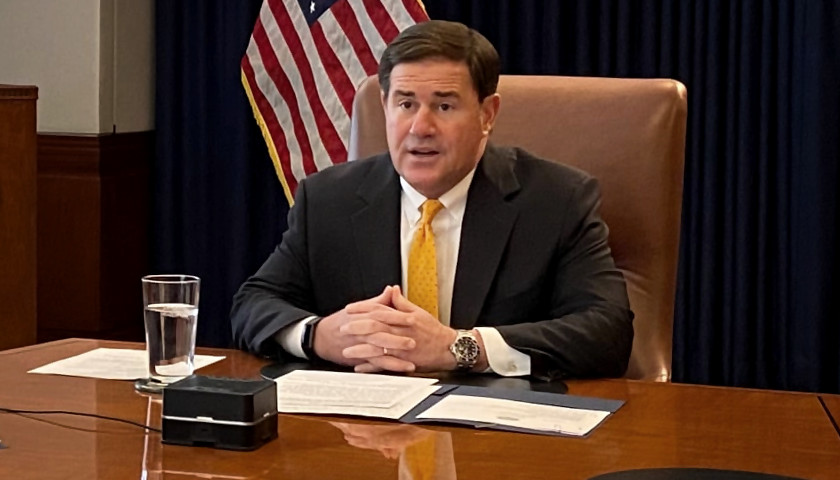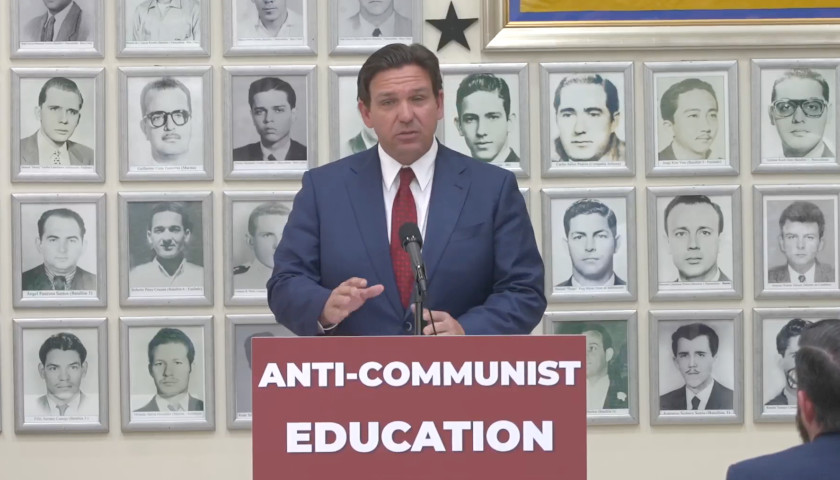Arizona Governor Doug Ducey is expected to sign a budget bill the Arizona Legislature sent to him on Friday that includes a historic tax reform package. HB 2900 implements the lowest flat tax in the country – 2.5% – that will be phased in over a period of three years.
“This budget makes responsible, targeted and substantial investments in the things that matter while allowing hardworking taxpayers to keep more of the money they earn,” said Governor Ducey in video remarks about the measure. “It is a landmark plan and it is the result of one of the most successful legislative sessions in Arizona history. We achieved a tax cut that will protect working families and small businesses, we’re paying off hundreds of millions of dollars in debt, we have the most sweeping child care package in the nation, and we’re making record investments in K-12 and higher education, infrastructure and public safety.”
The governors office projects the average Arizona family will see a 13% income tax reduction, about $350 per year. According to the nonpartisan Tax Foundation, Arizona previously had one of the highest marginal income tax rates in the country.
The budget bill also eliminates taxes on veterans’ retirement pay and prevents a 77% increase on small business taxes. It reduces property taxes by 10% on small businesses and job creators by 10%, capping the maximum tax rate on businesses at 4.5% and reducing commercial property taxes. According to a report by Ducey, 43% of Arizonans in the private sector work for small businesses. HB 2900 increases the homeowner’s rebate so the state covers half of homeowners’ primary property taxes.
Republicans control the state legislature by slim margins, 16-14 in the Senate and 31-29 in the House, so it was a tough battle getting it passed over Democrat opposition. A single Republican holdout in either chamber could have defeated the reform.
A voter passed surtax of 3.5% remains on voters who make over $250,000 annually, which the legislature can’t touch. So the legislature addressed that by limiting the flat tax on those taxpayers to only 1%, capping what they will pay at 4.5%.
Known as Prop. 208, the surtax was voted into law in 2020, increasing Arizona’s total top personal income tax rate from 4.5% to 8% – an increase of 78%. The Goldwater Institute estimated that its passage would result in the loss of 124,00 jobs, and businesses migrating to Arizona would decrease by 15%.
Matthew Boyle, CEO of Landmark Recover, said Prop. 208 prompted him to move his business to Nashville. He told ABC-15 in December, “We’ve doubled in size every year since we started in 2016. When we analyzed the numbers, we found that Prop 208 would cut our rate of growth by 50% over the next five years. If we don’t move now, it is going to be prohibitively costly in the future.”
Nine states – Alaska, Florida, Nevada, New Hampshire, South Dakota, Tennessee, Texas, Washington and Wyoming – have no income tax. New Hampshire add itself to that list when their income tax sunsets in 2024.
Grover Norquist, president of Americans for Tax Reform, praised the historic move, saying, “Arizona’s leaders understand that surplus revenue belongs to Arizona taxpayers. It is not a slush fund for politicians.”
The American Legislative Exchange Council reacted by changing their ranking of Arizona’s economic outlook from thirteenth best to third best in the country. According to ALEC, the reason Arizona is one of the more popular states for people to move to is because of its lower taxes; “Americans ‘vote with their feet.’” Ducey announced that “personal income rose last year at a rate faster than nearly any state in the country.”
Arizona has a nearly $4 billion surplus for the 2022 fiscal year, according to a Joint Legislative Budget Committee Report. This is the fifth consecutive year that Arizona’s revenue collections exceeded budgeted forecasts. According to Governor Ducey, economists forecast Arizona will have a $4 billion budget surplus over the next three years. He says the “tax reform DOES NOT impact or reduce any K-12 dollars, including those approved by voters in 2020.”
– – –
Rachel Alexander is the State House reporter at The Arizona Sun Times and The Star News Network. Follow Rachel on Twitter. Email tips to [email protected].








